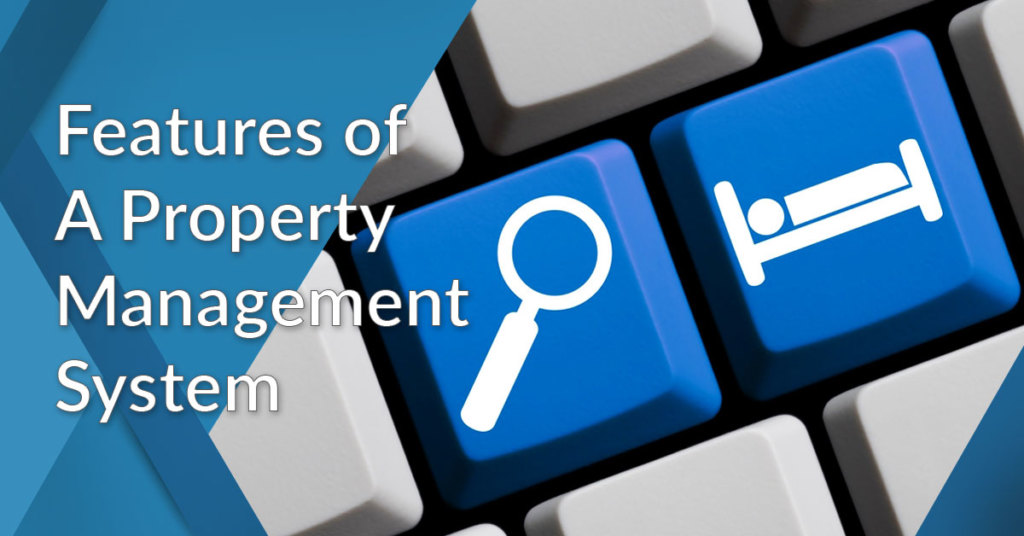Hoteliers of all shapes and sizes know that managing a property in 2026 takes a lot of work. In order to keep your property moving and working efficiently, software plays an essential role. SaaS property management systems have changed the game for property owners. But not all property management solutions are created the same. To help you find the best one for your company we’ve compiled a list of the most important features you should consider while searching for the best hotel property management system.
What are the 10 must-have features of a property management system?
The global hospitality property management software market is predicted have a growth rate of 8.0% from 2019 to 2025 and will reach $1.17 billion by the end of the forecast period. The primary growth driver for this market is the growth in tourism. According to a Deloitte report, there has been a historic surge in travel demand experienced by segments in the travel industry. With the upward and positive trend in travel and tourism, hotels and hospitality businesses are looking to keep pace with the demand while reducing cost and maintaining quality service offerings. Property management software helps managers and business owners handle daily operations, manage accounting and financials, as well as track and schedule tenants, availability, and bookings.

Credits: clock-software.com
The above visual shows the trends in property management software for managing hotel rooms and guests. The top 10 must-have features of property management software we’ve included here follow closely the direction that this type of solution is charting. If you’re a new business, take this as a guidepost as you navigate the hospitality industry. If you have been in the business longer, take stock of features you may have missed and evaluate the software you’re using. Maybe its time for an upgrade to a more robust solution that can scale as your business expands and takes in more clients and handle bigger operations. For the meantime, let’s go over the essentials below.

1. A Drag and Drop Calendar
An interactive calendar is essential to any property management system. A calendar allows property owners, managers, and employees to visualize their reservations and availability in different ways. Managing rooms and reservations can feel like an intense game of Tetris sometimes and a calendar helps give you a new perspective. You’ll find new opportunities to create more reservations and optimize current flow.

The calendar dashboard of Cloudbeds.
2. Rate Plan Management
One of the most important features of a property management system is rate plan management. In today’s market, your hotel’s rates are probably affected by a few different variables including distribution channel, season, day, etc. Therefore different rate plans are extremely necessary. A good property management system will allow you to create rate plans and derived rate plans and then easily assign them to reservations.
3. Integrated Channel Manager
Distribution is one of the major ways that small to medium-sized properties can compete with large hotel brands. Channel managers have become common and relatively cheap over the past few years. They’ve become essential to managing any type of property. When shopping around for a property management system, make sure that it connects to a powerful channel manager.
Choosing a channel manager that has direct, two-way integrations with many distribution channels will make all the difference in the world. While your property may not want to join every available channel, you’ll want as many options to choose from as possible.
4. Reporting
Reporting is essential to any business and your property is no different. When choosing a property management system, there should be a robust reporting module built in. There are many different types of reports that a hotel should run every night. A few examples of reports that should be run every night include a room and tax report which shows all your room revenue associated for the day or a shift audit report which shows the transactions each cashier performed for the day.
Generally, we separate reports into three categories:
Production Reports: Production reports help you understand how your property is operating per rate plan, distribution channel, RevPar, ADR, and occupancy calculations. These reports should be used to make strategic decisions on distribution, pricing, and the like.
Financial Reports: Financial reports are just what they sound like. They’re the nitty gritty numbers that report revenue, taxes, commissions, net income, etc. These reports help you understand what money is coming in and going out. They’re also essential for tax and government reporting purposes.
Daily Activity Reports: Daily activity reports help keep you and your staff on the same page every day. Arrival, departure, and in-house reports keep track of your guests and help run a smooth operation. Every day there are hundreds of things happening at the same time and these reports help bring order to chaos.

Pull reports of historical bookings with RezOvation.
5. Shared Inventory
Shared inventory allows you to sell the inventory in different formats. For example, shared inventory allows you to sell the same private room as multiple different room types. The purpose of this tool is to sell the most sought after room types to the people who want them at the right time. As a property, you don’t always know exactly what is in demand, whether it’s a room with two queens or a king. With shared inventory, you’re able to cater to the best of both worlds and offer what the market is looking for.
Shared inventory often enhances a property’s yield management strategy. Yield management is the practice of frequently changing rates and availability in order to get the most money per available booking or make your property the most competitive. Shared inventory helps make your shared inventory offerings even stronger by offering the same physical inventory in multiple different formats.
6. Direct Booking Support
Direct bookings have become a popular topic over the past few years and for good reason. Online distribution channels that can bring more business to your property are great, but they come at a cost. And sometimes, that cost is significant as commission percentages increase. However, if a traveler has found their way to your website, you deserve to capture their direct booking. And you’re much more likely to capture their lead if you have a streamlined direct booking engine on your website.
Gone are the days where guests are willing to fill out an inquiry form and then wait for you to email them back. A good booking engine allows guests to research their different options, check availability, complete payment, and receive a confirmation in one session.
Even the large hotels, who generally have a pretty tight relationship with online travel agencies, have made a massive push towards direct bookings in the past couple of years.
7. Customer Data Base
A good property management system will also act as a basic customer management system. Your previous guests’ contact information is a huge asset that a lot of properties neglect to use. Email marketing is still very much alive as 69% of businesses still spend time and money on it. Other than being able to tap new leads, you can also use it to keep in touch with previous customers about local happenings, discounts, and other important information.
Depending on the property, you may have a significant amount of returning guests. Having customer profiles will help you keep track of personal information to make their stay even better.
8. Point of Sale
Point of sale integrations is one of those small details that make a huge difference in a property management system. Accepting and modifying reservations becomes easy and seamless with a point of sale integration. Property management systems that separate their POS from their reservation and transaction system are at a greater risk for error and mismatched data.

Oracle Hospitality integrates with the Micros POS system.
9. Pricing Intelligence
Pricing intelligence is the latest technology to become more accessible to hoteliers of all sizes. Pricing intelligence is the process of collecting and acting upon real-time consumer and competitor activity. Pricing intelligence is directly related to yield management in that it allows you to make intelligent decisions based on real data.
Pricing intelligence software allows you to create competitor sets that group and track their rates and occupancy over time. Benchmarking your performance against your competitors is one of the best ways to optimize your offering. Sometimes it’s as simple as changing your pricing strategy and sometimes it’s more complicated and requires you to reevaluate your amenities or offering.
10. Track Other Revenue Services
Related to reporting and revenue management, a good property management system will allow you to add transactions to various accounts. Most properties need some sort of POS to manage payments for their bar, restaurant, small store, etc.
Examples of Hotel Management Software
- Cloudbeds is an online property management solution that gives you half a dozen essential tools on one easy-to-use platform. It offers a property management system that automatically updates availability for quick checking in and out of guests; a channel manager for handling your network of online travel distributors and partners; a booking engine that integrates with your Facebook pages and websites; business analytics that collects real-time market data to guide your distribution decisions and pricing; payment processing of credit and debit cards; and guest CRM that swiftly pulls guest data for creating new reservations. You get centralized management of operations from one location, a reservation/calendar dashboard, and inventory distribution that covers over 300 markets including the world’s leading online travel agencies. You can sign up for Cloudbeds free demo here to see how the software works.
- Oracle Hospitality is a product of Oracle Corporation, the third largest software maker in the world renowned for its cloud products and services. This particular solution for hotels, restaurant and similar businesses offers the latest cloud-based technologies to address the needs of travelers and guests in the hospitality market, ensuring that they get exceptional customer experiences. Oracle Hospitality an integrated system designed to streamline day-to-day management of operations, enhance speed and quality of service, and centralized management across multiple businesses and locations. It also has tools for rewards and loyalty programs, mobile capability, and reporting and analytics.
- RezOvation is a cloud-hosted booking platform for innkeepers and bed-and-breakfast business. It enables secure bookings and reservations as well as payment options for clients anytime, anywhere. Its booking engine can easily be embedded on your website for quick viewing by customers of time slot availability. It sends email alerts to clients to reduce no-shows and facilitates client bookings through mobile devices. RezOvation is able to automate important processes to eliminate manual data entry and can connect with various booking channels such as Facebook, Global Distribution System, and TripAdvisor, among others. It also comes with a synchronized availability calendar to optimize occupancy.
- Cheerze Connect is a feature-rich cloud-based hotel management system built to streamline and automate one’s hotel operations to minimize operational costs and enhance employee efficiency. With Cheerze Connect, you can manage your inventory, reservations, bookings, reports, and other records from within a unified location. Furthermore, it is greatly optimized for mobile devices, letting you access key information and manage core hotel operations on the fly. Another notable component of Cheerze Connect is its powerful POS that is built specifically for hotel operations.
How can mobile accessibility improve property management?
In today’s digital age, mobile accessibility has become crucial for property management systems (PMS) in the hospitality industry. Here’s how mobile-friendly PMS platforms enhance efficiency, accessibility, and responsiveness for hotel staff and managers:
- On-the-Go Management: With mobile access, hotel managers and staff can monitor reservations, check-in/check-out statuses, and manage room assignments from anywhere. This is especially beneficial for properties with multiple locations or staff members frequently moving between areas.
- Real-Time Updates: Mobile-enabled PMS platforms ensure that all updates (like booking changes, guest requests, or housekeeping statuses) are reflected instantly, allowing teams to coordinate in real-time. This reduces the chance of errors, such as double bookings or missed requests, and enhances overall service quality.
- Enhanced Guest Service: Hotel staff can respond to guest inquiries and special requests promptly from their mobile devices, leading to improved guest satisfaction. For example, room service or extra amenity requests can be addressed directly from a smartphone or tablet, speeding up the response time.
- Easy Access to Reporting and Analytics: Managers can view occupancy rates, revenue reports, and other essential metrics on mobile, enabling them to make informed decisions without needing to access a desktop system. This flexibility is vital for quick decision-making during peak hours.
- Improved Housekeeping Efficiency: Mobile accessibility allows housekeeping staff to receive real-time updates on room statuses, checklists, and cleaning schedules. Rooms can be marked ready for check-in immediately upon completion, reducing wait times and increasing turnover efficiency.
Core Tools for your Business
In today’s day and age, there are many hotel management software options and functionalities at all price points. No matter what type or size of property you operate, there is likely a solution of there that will work for you. The ten functions listed above are some of the most basic and important in today’s ever-changing market. Put you and your property in a position to win with increased intelligence and efficiency.
The features we listed above will form the core tools of your business. Together with automation and integration capabilities, they will help you streamline your operation and extend your platform to do other functions such as accept online payments and keep detailed information on your customers and transactions. If you want to know more of what a property management system can do for you, check out our top software in this category. Sign up for Cloudbeds free demo here.
Key Insights
- Comprehensive Management: Modern property management systems (PMS) offer a wide range of features that streamline various aspects of hotel management, from reservations to customer data management.
- Growth of PMS Market: The global hospitality property management software market is growing rapidly, driven by increasing tourism and the need for efficient operations in the hospitality industry.
- Automation and Efficiency: PMS solutions provide automation for repetitive tasks, enhancing efficiency and reducing human errors, which is crucial for maintaining high-quality service.
- Revenue Management: Features like pricing intelligence and shared inventory management help hoteliers maximize revenue through dynamic pricing and optimal room allocation.
- Direct Bookings: Support for direct bookings reduces reliance on third-party distribution channels, cutting down on commission costs and increasing profitability.
- Integration Capabilities: Effective PMS software integrates with various third-party services, including payment gateways, point of sale systems, and channel managers, ensuring a seamless operation.
- Customer Relationship Management: A robust PMS includes customer data management features, allowing hoteliers to maintain detailed profiles and enhance customer service through personalized experiences.
- Scalability: PMS solutions cater to properties of all sizes, offering scalable features that grow with the business, making them suitable for both small inns and large hotel chains.
- Real-Time Data and Reporting: Comprehensive reporting tools provide real-time insights into various aspects of the business, aiding in strategic decision-making.
- Adaptation to Market Trends: Modern PMS solutions are designed to adapt to current market trends, such as the increase in mobile device usage and the demand for online bookings.
FAQ
- What are the essential features to look for in a property management system?
The essential features of a property management system include a drag-and-drop calendar, rate plan management, an integrated channel manager, comprehensive reporting, shared inventory, direct booking support, a customer database, point of sale integration, pricing intelligence, and the ability to track other revenue services. - How does a drag-and-drop calendar benefit property management?
A drag-and-drop calendar allows property managers to visualize reservations and availability easily, making it simpler to manage bookings, optimize room allocation, and identify opportunities for additional reservations. - Why is rate plan management important in a PMS?
Rate plan management is crucial as it allows hotels to set different rates based on variables like distribution channel, season, and day of the week, helping them maximize revenue and remain competitive. - What is the role of an integrated channel manager in a PMS?
An integrated channel manager connects the PMS to various online distribution channels, ensuring that room availability and rates are updated in real-time across all platforms, reducing the risk of overbooking and increasing visibility. - How do reporting features enhance hotel management?
Reporting features provide insights into various aspects of hotel operations, such as financial performance, occupancy rates, and guest activities. This data helps managers make informed decisions to improve efficiency and profitability. - What is shared inventory, and why is it useful?
Shared inventory allows a hotel to sell the same physical room as different room types, catering to different market demands and optimizing occupancy rates by adjusting availability based on demand. - How does direct booking support benefit a hotel?
Direct booking support reduces the need for third-party booking channels, saving on commission fees and increasing profit margins. It also allows hotels to build direct relationships with guests and offer personalized services. - Why is having a customer database important in a PMS?
A customer database stores detailed information about past guests, enabling personalized marketing, improved customer service, and enhanced guest experiences, leading to higher satisfaction and repeat business. - What advantages does point of sale integration offer?
Point of sale integration streamlines the reservation and transaction process, reduces errors, and ensures that all guest charges are accurately recorded and billed, improving operational efficiency. - What is pricing intelligence, and how does it impact hotel management?
Pricing intelligence involves collecting and analyzing real-time data on consumer behavior and competitor pricing. It allows hotels to adjust their rates dynamically to stay competitive and maximize revenue. - How does a PMS help track other revenue services?
A PMS can manage transactions for various hotel services like bars, restaurants, and stores, ensuring that all revenue streams are tracked accurately and contributing to the overall financial picture. - Can a PMS system scale with a growing hotel business?
Yes, most modern PMS solutions are scalable and designed to grow with the business, offering features that cater to small inns and expanding to accommodate the needs of larger hotel chains.


























Hey Louie Andre, it’s a spectacular post.
You really did gave hoteliers ‘All the Scoop’ on the top features of a hotel property management system.
In this contemporary world, to stay ahead of the competitive market Hoteliers must integrate their PMS with Hotel Accounting Software. The results are really promising!!!
Especially monitoring the daily sales of entire property portfolio becomes possible, starting from Occupancy Percentages, ADR, RevPAR and other happenings.
Leave a comment!